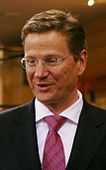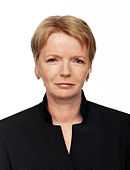German federal election, 2002
| | |||||||||||||||||||||||||||||||||||||||||||||||||||||||||||||||||||||||||||||||||||||||||||||||||||||||||||
| |||||||||||||||||||||||||||||||||||||||||||||||||||||||||||||||||||||||||||||||||||||||||||||||||||||||||||
| |||||||||||||||||||||||||||||||||||||||||||||||||||||||||||||||||||||||||||||||||||||||||||||||||||||||||||
|
| |||||||||||||||||||||||||||||||||||||||||||||||||||||||||||||||||||||||||||||||||||||||||||||||||||||||||||
| Party list election results by state: pink denotes states where the SPD had the plurality of votes; dark blue denotes states where CSU had the absolute majority of the votes; and lighter blue denotes states where CDU had the plurality of votes | |||||||||||||||||||||||||||||||||||||||||||||||||||||||||||||||||||||||||||||||||||||||||||||||||||||||||||
| |||||||||||||||||||||||||||||||||||||||||||||||||||||||||||||||||||||||||||||||||||||||||||||||||||||||||||
 |
| This article is part of a series on the politics and government of Germany |
|
Legislature
|
|
| Foreign relations |
|
Politics portal |
German federal elections took place on 22 September 2002, to elect members to the 15th Bundestag (lower house) of Germany.
Issues and campaign
Several issues dominated the campaign, with the opposition CDU/CSU attacking the government's performance on the economy which fell back into recession due to the Telecoms crash and the introduction of the euro. As well as campaigning on family values issues and against taxes (particularly on fuel). The government, on the other hand, was helped by broad support for its opposition to the Iraq War, continued media attention on the CDU fudning scandal and by Gerhard Schröder's personal popularity relative to the opposition's candidate for Chancellor, CSU leader Edmund Stoiber.
Early in the campaign, Guido Westerwelle, leader of the Free Democrats, declared himself a "Chancellor Candidate," usually a title reserved for the main election leaders of the SPD and CDU/CSU. This was met with general derision.
Results
Although the opposition gained seats, and the result was in doubt for most of the election night, the governing coalition retained a narrow majority. In particular, the SPD was able to partially offset declines in their vote share in the West with an increase in the East, with the PDS falling below both the 5% threshold and the 3-seat threshold, either of which is required to qualify a party for top-up seats. Consequently the PDS held only two directly-elected seats.
| Parties | Constituency | Party list | Total seats | |||||||||||||
|---|---|---|---|---|---|---|---|---|---|---|---|---|---|---|---|---|
| Votes | % | +/− | Seats | +/− | Votes | % | +/− | Seats | +/− | Seats | +/− | % | ||||
| Social Democratic Party (SPD) | 20,059,967 | 41.9 | −1.9 | 171 | −41 | 18,488,668 | 38.5 | −2.4 | 80 | −6 | 251 | −47 | 41.6 | |||
| Christian Democratic Union (CDU) | 15,336,512 | 32.1 | −0.1 | 82 | +8 | 14,167,561 | 29.5 | +1.1 | 108 | −16 | 190 | −8 | 31.5 | |||
| Christian Social Union (CSU) | 4,311,178 | 9.0 | +1.7 | 43 | +5 | 4,315,080 | 9.0 | +2.2 | 15 | +6 | 58 | +11 | 9.6 | |||
| Alliance '90/The Greens | 2,693,794 | 5.6 | +0.6 | 1 | +1 | 4,110,355 | 8.6 | +1.9 | 54 | +7 | 55 | +8 | 9.1 | |||
| Free Democratic Party (FDP) | 2,752,796 | 5.8 | +2.8 | 0 | ±0 | 3,538,815 | 7.4 | +1.1 | 47 | +4 | 47 | +4 | 7.8 | |||
| Party of Democratic Socialism (PDS) | 2,079,203 | 4.3 | −0.6 | 2 | −2 | 1,916,702 | 4.0 | −1.1 | 0 | −32 | 2 | −34 | 0.3 | |||
| Party for a Rule of Law Offensive (Schill party) | 120,330 | 0.3 | +0.3 | 0 | ±0 | 400,476 | 0.8 | +0.8 | 0 | ±0 | 0 | ±0 | 0 | |||
| The Republicans (REP) | 55,947 | 0.1 | −0.5 | 0 | ±0 | 280,671 | 0.6 | −1.2 | 0 | ±0 | 0 | ±0 | 0 | |||
| National Democratic Party (NPD) | 103,209 | 0.2 | +0.1 | 0 | ±0 | 215,232 | 0.4 | +0.1 | 0 | ±0 | 0 | ±0 | 0 | |||
| Animal Protection Party | 8,858 | 0.0 | ±0 | 0 | ±0 | 159,655 | 0.3 | ±0 | 0 | ±0 | 0 | ±0 | 0 | |||
| The Grays – Gray Panthers (GRAUE) | 75,490 | 0.2 | −0.1 | 0 | ±0 | 114,224 | 0.2 | −0.1 | 0 | ±0 | 0 | ±0 | 0 | |||
| Party of Bible-abiding Christians (PBC) | 71,106 | 0.1 | ±0 | 0 | ±0 | 101,645 | 0.2 | +0.1 | 0 | ±0 | 0 | ±0 | 0 | |||
| Ecological Democratic Party (ödp) | 56,593 | 0.1 | −0.2 | 0 | ±0 | 56,898 | 0.1 | −0.1 | 0 | ±0 | 0 | ±0 | 0 | |||
| Feminist Party (DIE FRAUEN) | 2,264 | 0.0 | ±0 | 0 | ±0 | 36,832 | 0.1 | ±0 | 0 | ±0 | 0 | ±0 | 0 | |||
| Family Party (FAMILIE) | 15,138 | 0.0 | ±0 | 0 | ±0 | 30,045 | 0.1 | ±0 | 0 | ±0 | 0 | ±0 | 0 | |||
| Solidarity (BüSo) | 22,531 | 0.0 | ±0 | 0 | ±0 | 16,958 | 0.0 | ±0 | 0 | ±0 | 0 | ±0 | 0 | |||
| Christian Centre (CM) | 2,413 | 0.0 | ±0 | 0 | ±0 | 15,440 | 0.0 | ±0 | 0 | ±0 | 0 | ±0 | 0 | |||
| Bavaria Party (BP) | 6,757 | 0.0 | ±0 | 0 | ±0 | 9,379 | 0.0 | ±0 | 0 | ±0 | 0 | ±0 | 0 | |||
| Party for Pension Justice and Family (PRG) | 4,363 | 0.0 | +0.0 | 0 | ±0 | 7,499 | 0.0 | +0.0 | 0 | ±0 | 0 | ±0 | 0 | |||
| Departure for Civil Rights, Freedom and Health (AUFBRUCH) | 2,895 | 0.0 | +0.0 | 0 | ±0 | 4,697 | 0.0 | +0.0 | 0 | ±0 | 0 | ±0 | 0 | |||
| Centre Party (Zentrum) | 1,823 | 0.0 | ±0 | 0 | ±0 | 3,127 | 0.0 | +0.0 | 0 | ±0 | 0 | ±0 | 0 | |||
| Humanist Party (HP) | 1,385 | 0.0 | ±0 | 0 | ±0 | 2,485 | 0.0 | ±0 | 0 | ±0 | 0 | ±0 | 0 | |||
| The Violets (Violetten) | 840 | 0.0 | +0.0 | 0 | ±0 | 2,412 | 0.0 | +0.0 | 0 | ±0 | 0 | ±0 | 0 | |||
| Communist Party (KPD) | 686 | 0.0 | +0.0 | 0 | ±0 | 1,624 | 0.0 | +0.0 | 0 | ±0 | 0 | ±0 | 0 | |||
| German Social Union (DSU) | 6,003 | 0.0 | ±0 | 0 | ±0 | – | – | – | – | – | 0 | ±0 | 0 | |||
| German Communist Party (DKP) | 3,953 | 0.0 | ±0 | 0 | ±0 | – | – | – | – | – | 0 | ±0 | 0 | |||
| Freedom Party (FP Deutschlands) | 2,003 | 0.0 | ±0 | 0 | ±0 | – | – | – | – | – | 0 | ±0 | 0 | |||
| Alliance for Germany (Deutschland) | 571 | 0.0 | ±0 | 0 | ±0 | – | – | – | – | – | 0 | ±0 | 0 | |||
| Electoral groups and independents | 43,116 | 0.1 | ±0 | 0 | ±0 | – | – | – | – | – | 0 | ±0 | 0 | |||
| Invalid/blank votes | 741,037 | — | — | — | — | 586,281 | — | — | — | — | — | — | — | |||
| Totals | 48,582,761 | 100 | ±0.0 | 299 | –29 | 48,582,761 | 100 | ±0.0 | 304 | –37 | 603 | –66 | 100 | |||
| Registered voters/turnout | 61,432,868 | 79.1 | — | — | — | 61,432,868 | 79.1 | — | — | — | — | — | — | |||
| Source: Federal Returning Officer | ||||||||||||||||

| 251 | 248 | 55 | 47 | 2 |
| SPD | CDU/CSU | Grüne | FDP | PDS |
Post-election
The coalition between the SPD and the Greens continued in government with Gerhard Schröder as chancellor.
Further reading
- Pulzer, Peter (April 2003). "The devil they know: The German federal election of 2002". West European Politics 26 (2): 153–164. doi:10.1080/01402380512331341151.
References
- ↑ "Voter turnout by election year". Website of the Federal Returning Officer's Office. The Federal Returning Officer. Retrieved 7 November 2014.
Sources
| ||||||||||||||||||||||


.jpg)


